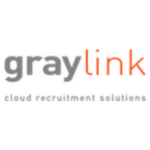Description

Big Biller

Cloudrecruit
Comprehensive Overview: Big Biller vs Cloudrecruit
As of my last update, "Big Biller" and "Cloudrecruit" are two different products in the recruitment software space. However, specific details about "Cloudrecruit" are sparse, so the information provided here is based on typical features and market strategies commonly associated with products named similarly. Please verify with up-to-date sources for the latest information. Here's a general overview:
a) Primary Functions and Target Markets:
Big Biller:
- Primary Functions: Big Biller is primarily an applicant tracking system (ATS) combined with customer relationship management (CRM) capabilities. It helps recruiting firms streamline their processes by managing candidate data, tracking recruitment activities, and maintaining client relationships.
- Key Features: Job order management, resume parsing, integrated email, intuitive search capabilities, activity tracking, pipeline management, and reporting tools.
- Target Markets: Primarily designed for small to mid-sized recruiting and staffing agencies. It is beneficial for firms looking for an affordable and user-friendly solution to manage the recruitment lifecycle.
Cloudrecruit:
- Primary Functions: Although specific details about "Cloudrecruit" are not extensively documented, products with similar naming often focus on cloud-based recruitment solutions, offering functionalities like candidate sourcing, applicant tracking, collaboration tools, and sometimes AI-driven analytics.
- Target Markets: Typically targets a wide range of recruitment environments—from in-house HR departments to recruitment agencies focusing on flexibility, scalability, and ease of access via cloud-based solutions.
b) Market Share and User Base:
-
Market Share: Exact market share figures for each product are not publicly available; however, software like Big Biller is part of the broader applicant tracking system market, which competes with well-known brands like Taleo, Greenhouse, and Bullhorn. Specific market presence can vary significantly based on geographic locations and specific industry needs.
-
User Base: Big Biller, being a product of Top Echelon, is primarily used by small to medium-sized agencies. The user base is generally composed of recruiters who emphasize simplicity and efficiency over more intricate, enterprise-grade solutions. For Cloudrecruit, without specific details, the user base would be inferred from common cloud-based recruiting software user bases—likely varied in size and industry, emphasizing flexibility and remote accessibility.
c) Key Differentiating Factors:
Big Biller:
- Integration of ATS and CRM: Offers a seamless blend of ATS and CRM features tailored to small to mid-sized agencies, providing a comprehensive tool for managing both candidates and client relationships.
- User-Friendliness: Known for its straightforward, intuitive interface, making it accessible for users who may not have extensive technical backgrounds.
- Affordability: Positioned as a cost-effective solution, attracting smaller firms that may not have the budget for more expensive enterprise-level systems.
Cloudrecruit:
- Cloud-Based Flexibility: Assuming typical functionalities of similarly named products, Cloudrecruit would feature flexibility and accessibility, with recruitment tools available from any location with internet access.
- Scalability: Likely to offer scalable solutions that grow with the business, capable of handling increasing volumes of recruitment activity without the need for significant infrastructure investment.
- Potential AI/Technology Integration: Many new cloud-based solutions incorporate AI for analytics and decision support, which may be a differentiator if Cloudrecruit follows this trend.
Conclusion:
While specific details about Cloudrecruit are limited, both Big Biller and similarly named products demonstrate the breadth of solutions available in the recruitment software space, offering different strengths in terms of usability, technological flexibility, and target audience fit. Big Biller attracts small to mid-sized agencies with its integrated ATS/CRM combination and user-friendly design, whereas Cloudrecruit-like solutions might appeal to those needing flexible, scalable cloud-based recruitment capabilities. Market share and user base specifics would need current comparative data from industry reports or credible third-party resources for a precise analysis.
Contact Info

Year founded :
Not Available
Not Available
Not Available
Not Available
Not Available

Year founded :
Not Available
+61 474 226 332
Not Available
Australia
http://www.linkedin.com/company/cloud-recruit
Feature Similarity Breakdown: Big Biller, Cloudrecruit
As of my last update, here's a general feature similarity breakdown for Big Biller and Cloudrecruit, two popular applicant tracking systems (ATS). This is a rough guideline and specifics might vary depending on the version or updates made post-October 2023.
a) Core Features in Common
-
Candidate Management: Both platforms offer robust candidate tracking systems that allow users to add, search, and manage candidate profiles effectively.
-
Job Posting: They provide features to create and manage job postings across multiple platforms, including synchronization with various job boards.
-
Resume Parsing: Automated resume parsing tools are common, allowing the extraction of relevant candidate information to populate profiles within the system.
-
Communication Tools: Integrated email and messaging functionalities for direct communication with candidates and clients.
-
Collaboration: Features that facilitate teamwork, such as sharing candidate profiles, notes, and feedback among team members.
-
Reporting and Analytics: Both systems likely provide basic reporting tools to track recruitment metrics and generate insights into hiring efficiency and performance.
-
Integration Capabilities: Compatibility with other HR tools, job boards, and third-party apps to extend functionality and integrate seamlessly with existing workflows.
b) User Interface Comparison
-
Big Biller: Known for a straightforward, user-friendly interface that emphasizes simplicity and ease of use. It typically appeals to smaller to mid-sized recruiting firms due to its streamlined and intuitive design.
-
Cloudrecruit: Offers a more modern and potentially customizable interface that is designed to handle complex recruitment processes. It may include dashboards that provide an at-a-glance view of recruitment activities and more intricate customization options in the user settings.
c) Unique Features
-
Big Biller:
- Network Sharing: Unique emphasis on networking by allowing users to connect with other recruiters and share candidate or job information within a recruiter’s network.
- Pipeline Management: Simplified built-in tools tailored for managing candidate pipelines effectively with drag-and-drop functionalities.
-
Cloudrecruit:
- AI-Powered Features: Advanced AI capabilities for smart candidate matching and predictive analytics that might not be as robust in Big Biller.
- Customization Options: More flexibility in customizing workflows, which allows for extensive tailoring of recruitment processes according to specific organizational needs.
- Advanced Analytics: Possibly more advanced analytical and forecasting tools to help recruiters make data-driven hiring decisions.
Both software solutions provide valuable tools for recruitment, but the choice between them would likely depend on the specific needs regarding the simplicity of use, the complexity of available features, and the level of customization required by the recruiting firm. Before making any final decisions, it is advised to take advantage of demo versions or free trials to see firsthand how they align with your recruiting processes.
Features

Not Available

Not Available
Best Fit Use Cases: Big Biller, Cloudrecruit
Big Biller and Cloudrecruit are both recruiting software solutions aimed at streamlining the hiring process, but they cater to different types of businesses and project needs. Here’s a breakdown of their best-fit use cases:
Big Biller
a) Best Fit for Types of Businesses or Projects:
- Small to Mid-sized Recruitment Agencies: Big Biller is well-suited for smaller to mid-sized recruitment firms looking for an easy-to-use ATS (Applicant Tracking System) that doesn’t require extensive training or resources to implement.
- Independent Recruiters: Freelance recruiters or small teams that need an efficient tool for managing their candidate and client databases will find Big Biller particularly advantageous.
- Businesses with Standard Recruitment Needs: Companies or agencies that deal with traditional recruitment workflows and require straightforward job posting, resume parsing, and candidate tracking are ideal users.
- Project-based Hiring: Agencies working on projects with specific hiring needs can benefit from Big Biller's streamlined and focused functionalities.
b) Preferred Scenarios:
- Budget-conscious Settings: Organizations operating on a tight budget seek an affordable solution that provides core functionalities without the need for comprehensive customization.
- Quick Setup and Implementation: When businesses need a recruitment solution that is quick to deploy without complex integrations, Big Biller is a preferred choice.
Cloudrecruit
a) Best Fit for Types of Businesses or Projects:
- Large Enterprises and Corporations: Cloudrecruit caters to large businesses that require advanced recruiting solutions with robust tracking and reporting features.
- Highly Specialized Recruitment Firms: Companies that need customized workflow solutions and integrations across various platforms benefit from Cloudrecruit’s capabilities.
- Tech-savvy Organizations: Firms willing to invest in technology and capable of leveraging sophisticated software tools will find Cloudrecruit suitable.
- Volume Hiring Projects: Large-scale recruitment projects involving numerous candidates and complex processes are well-suited to Cloudrecruit given its capacity to handle vast amounts of data.
b) Preferred Scenarios:
- Complex Hiring Processes: Scenarios where the recruitment process involves multiple stages, detailed reporting, and inter-departmental collaboration benefit from Cloudrecruit’s comprehensive features.
- Industry-specific Customization: Businesses requiring specific compliance needs or industry-focused recruiting strategies would prefer Cloudrecruit due to its flexibility and customization.
Catering to Different Industry Verticals or Company Sizes:
-
Industry Verticals:
- Big Biller: More generalist, applicable to industries like retail, entry-level healthcare, or any sector where simpler recruiting processes suffice.
- Cloudrecruit: Highly adaptable across multiple industries, particularly useful in sectors like technology, finance, and healthcare, where recruitment may involve stringent regulation and specialized talent.
-
Company Sizes:
- Small and Medium Enterprises (SMEs): Tend to favor Big Biller due to its affordability and ease of use.
- Large Enterprises: Typically lean towards Cloudrecruit as they require more extensive features, such as in-depth analytics, advanced filtering, and comprehensive integrations.
By choosing the solution that aligns with their size and industry needs, companies can enhance their recruitment process efficiency and effectiveness substantially.
Pricing

Pricing Not Available

Pricing Not Available
Metrics History
Metrics History
Comparing teamSize across companies
Conclusion & Final Verdict: Big Biller vs Cloudrecruit
When evaluating Big Biller and Cloudrecruit, it's essential to consider various factors such as features, pricing, ease of use, customer support, and overall value to determine which product offers the best solution for users' needs.
Conclusion and Final Verdict
a) Best Overall Value: Considering the key factors, Cloudrecruit offers the best overall value. Its comprehensive suite of features, competitive pricing, and excellent customer support make it a strong contender for businesses looking to streamline their recruitment processes. While Big Biller has its own strengths, Cloudrecruit tends to offer more robust options for integrating into existing systems and scaling alongside a growing business.
b) Pros and Cons:
-
Big Biller:
- Pros:
- User-friendly interface, suitable for small to mid-sized businesses.
- Offers solid candidate tracking features and robust resume parsing tools.
- Attractive pricing for startups and smaller teams.
- Cons:
- Limited in customization and scalability, which can be a drawback for larger enterprises.
- Fewer integration options compared to Cloudrecruit.
- Some users report limited reporting and analytics features.
- Pros:
-
Cloudrecruit:
- Pros:
- Extensive feature set, including strong analytics and reporting tools.
- Highly customizable, able to integrate with a wide range of other business software.
- Scalable solution that can grow with a company’s needs, ideal for medium to large enterprises.
- Cons:
- May have a steeper learning curve due to its extensive features.
- Higher initial cost, which might not be suitable for very small businesses or startups with tight budgets.
- Pros:
c) Recommendations for Users: For users trying to decide between Big Biller and Cloudrecruit, consider the following:
-
Small Businesses and Startups: If budget constraints are a primary concern and the business operates on a smaller scale, Big Biller might be the more suitable choice. Its ease of use and lower pricing are appealing to smaller teams or those new to Applicant Tracking Systems (ATS).
-
Medium to Large Enterprises: For larger businesses or those anticipating significant growth, Cloudrecruit is recommended. Its ability to integrate seamlessly with various platforms, along with its robust feature set, makes it a more scalable solution capable of meeting complex recruitment needs.
-
Feature Prioritization: If specific advanced features, integrations, or detailed analytics are crucial for your operations, Cloudrecruit will likely be the better match. However, if simplicity and essential tracking functionalities are sufficient, Big Biller will serve well without overwhelming users with unnecessary complexity.
Ultimately, the decision should be guided by a careful assessment of current needs, future growth potential, and budget considerations to ensure the chosen ATS provides the necessary support and efficiency improvements for the recruitment process.
Add to compare
Add similar companies




